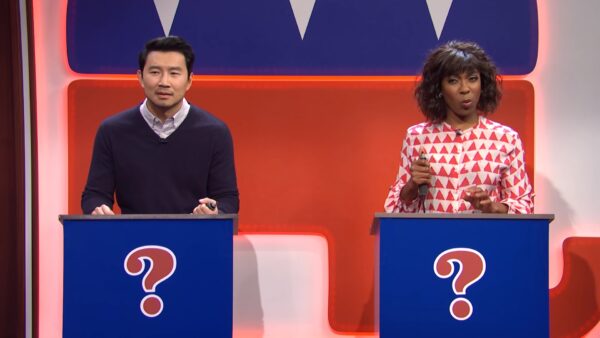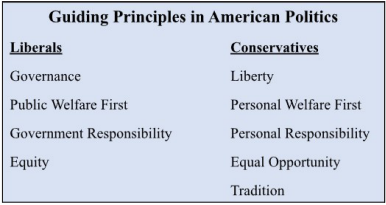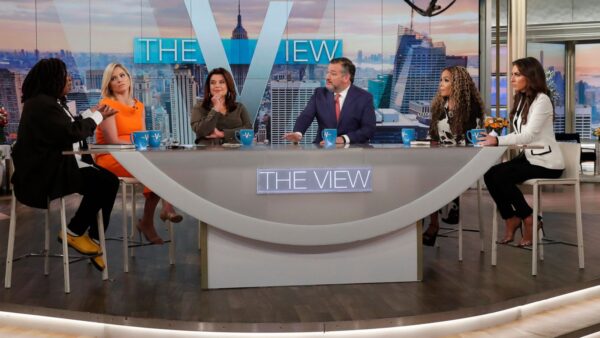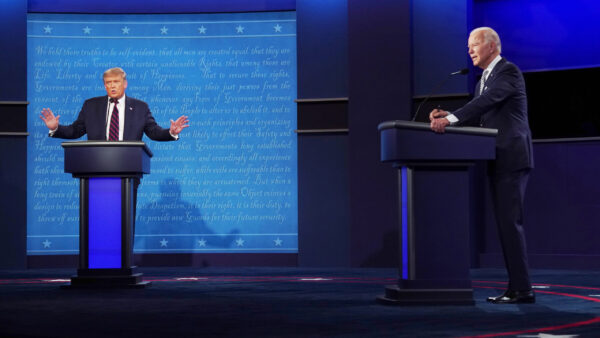Discovering what principles guide our core political beliefs, we can then choose what policies to support.
Ahead of the 2018 midterm elections, CNN reporters descended on a University of Georgia football game to ask college Republicans why they supported President Donald Trump. In one short clip, a reporter asked a student, Salina, how she could overlook Trump’s personality problems.
“The economy is important to me; it’s about policies,” Salina said, “and character isn’t our issue.”
Then the reporter asked, “So you’re willing to excuse a lot of the tweets and a lot of, say, the comments around Charlottesville because of the policies?”
The clip then shows a painful, five-second close-up of Salina’s face as she sits speechless, unable to answer the question, before CNN cuts to the next clip.
Avoiding Inconsistencies
How did this interview go so wrong for Salina?

In diving into this question, ignore the fact that the CNN reporter asked a “gotcha” question of a student. And forget the fact they edited the clip to make the student look as stupid as possible. That’s just what they do for a living.
Instead, focus on Salina’s response. What happened to her happens to all of us many times in life, especially in political and religious conversations where the questioner points out a perceived inconsistency in our beliefs, and we are unprepared to articulate our position.
Uncovering inconsistencies is a major goal of those opposed to our views. On the one hand, they are looking for flaws in the things we believe (i.e., it doesn’t make sense). And on the other hand, they are trying to spot dishonesty or insincerity (stemming from an ulterior motive).
At its worst, an inconsistency can be a sign of hypocrisy — rooted in an unfair application of policy that benefits me, and punishes you. Hypocrisy, if it can be found, is the jackpot your opponent is trying to hit.
“Republican or Not”
A Saturday Night Live comedy skit from last year provides another great example of these perceived inconsistencies in policy. In a hilarious game of “Republican or Not,” the host invites a guest to make statements, and two contestants have to guess whether the guest is a Republican. After getting the first guest wrong, the contestants become wary of the game.
HOST: Let’s meet our second guest, Lacy. Lacy came here from Manhattan.
CONTESTANT 1: Uh, New York City, or Kansas?
HOST: I can’t say. Start the clock!
LACY: On Twitter, my pin tweet is ‘My body, my choice.’
CONTESTANT 1: Err ok, that’s a trick. She’s talking about vaccines, right?
LACY: I support Caitlyn Jenner.
CONTESTANT 2: In what way? Politically?
LACY: My favorite comic is Dave Chappelle.
CONTESTANT 2: Starting when?
LACY: Last month I went to a board meeting and complained about a book being taught in my daughter’s school.
CONTESTANT 1: Ok, I definitely know that one. She’s a Republican!
[wrong answer buzzer]
HOST: No, sorry!
CONTESTANT 1: What!? She was complaining about a book in her kid’s school!
HOST: That’s right, and that book: The Bible!

Who Is Right?
What SNL pointed out here was Republicans’ inconsistent application of policy — a person should have full control of their bodies in the vaccine debate but not in the abortion debate. And a Republican might advocate for a policy scrubbing political content from school libraries but not religious content.
At this point, some of you Conservatives might be bursting to shout that neither the CNN nor the SNL depiction of Republicans was fair! You are right; but just hang on a little longer with me.
Principles, Not Policies
It is during these “Salina” moments, when someone points out an inconsistency in our policy beliefs, that we are really pushed to introspect on what our underlying principles are. Unfortunately, public debate is almost exclusively an argument over policy, and we almost never address differences in our guiding principles. But principle is where lies most of our disagreements.
This problem leads most Conservatives and Liberals to state their beliefs on a basket of policies: I believe in the Second Amendment, I believe in lower taxes, or I believe in Donald Trump. On the left I might advocate for clean energy, women’s rights to an abortion, or immigration reform.
The Difference between Religion and Political Parties
In religion we are used to accepting an entire basket of beliefs. The justification is that if I am a “believer,” that means I believe God wrote the standard. As an omnipotent Being, He wrote the entire basket of standards perfectly.
No one should put so much faith in the policies of man, however. For that reason, people should be careful not to accept an entire basket of policies adopted by a political party. Parties change policy platforms all the time, and the policies are not necessarily consistent with each other.
You can join a political party. But rather than letting the party define your policy beliefs like a religion might, let your principles guide your political beliefs instead.
The problem with principles is that even though they are affecting our daily decisions, we don’t think of them consciously. We may not even consider them until some argument forces us to ask ourselves why there is an apparent inconsistency in our policy.
What Are the Principles?
I prepared a list of principles that I think are unique to either American Liberals or Conservatives in the box below:

Conservative Principles Guiding Political Beliefs
In essence, Conservatives are willing to take more personal responsibility in order to have more liberty. Liberals, on the other hand, would argue that it’s more efficient for a government to set laws protecting people from others, and from themselves, at the expense of some personal liberty (seat belts, vaccine mandates, etc.).
The same argument appears in the “welfare” principle, which is economic in nature. How much personal wealth are you willing to sacrifice for the common (greater) good, and do you want to hire the government to administer that welfare program?
Liberal Principles Guiding Political Beliefs
The strongest ethic among liberals is fairness or justice, which I labeled as “equity.” To them, administering equity is perhaps the most important role of government. Conservatives are more nuanced in their belief about equality though — that a level playing field should only be guaranteed as far as providing a person opportunity. Then personal responsibility takes over.
Tradition, as a principle, stands out like a sore thumb. It is antithetical to Liberals’ progressivism, and they are quick to point out the flaws of tradition. They are correct. But Conservatives hold to tradition under the idea the devil you know is better than the devil you don’t. Conservatives rely on precedent to keep from breaking something that has mostly worked for nearly 250 years. Some experts may offer to do it better, but Conservatives feel no one is qualified or worthy enough to reengineer the system.
Morality and Meaning
Again this is just my list. Although I left off principles both sides share, you will look at this list and find that you actually are guided by principles in both columns. That’s good. Also you have to remember that even though we as Americans see the two columns as black and white and everyone’s in just one of these columns, this doesn’t apply to any other nation of people.
Years ago my sister was talking about this guy she worked with. As she described him, he just sounded like an odd guy.
Finally I asked, “So is he conservative or liberal?”
My sister answered, “He’s German!”
I had erroneously tried to place him in my American box. Jeez!
Conservatives Are Guided by More Principles Than Political Beliefs
Other political scientists and psychologists have made their own lists of principles guiding Liberals and Conservatives. In researching this, I found (anecdotally at least) that Conservatives are more likely to list out their principles than Liberals, while Liberals focus more on policy. I also found that Conservatives are guided by more principles than Liberals are.
That was the most apparent in a 2009 University of Virginia study uncovering people’s “moral foundations.” The study found that Liberals have just two foundations: Fairness, and [preventing] Harm. It found that Conservatives endorsed these two foundations as strongly, but that they were also guided by three more foundations almost as equally: Loyalty, Authority, and Purity. Maybe more on what these are another day.

Attachment to Political Parties and People
So at this point I’ve talked about what the principles are, and soon will talk about how we apply them to political policy. But first I want to discuss what gets people hung up in inconsistency.
Looking back to Salina’s example, she tried but miserably failed to articulate her support for Trump. Trump, as most admit, has a list of personality and character problems taller than the golden escalator at Trump Tower. He’s not as pure as principle, yet many have raised him up to that stature. To deal with the cognitive dissonance in this support, Salina chose to entirely disregard the bad stuff.
This happens all the time and on both sides of the aisle. During the 2008 presidential election cycle, the markets were in a catastrophic freefall, and people were worried. One of my ski instructor co-workers at Brian Head Resort said, “Obama is the only one who can save us now.” Whether right or wrong, it is dangerous to raise any person, party or policy to savior-status. Unless a savior is perfect, he will always disappoint. Always.
Like raising people to savior-status, we all are inclined to do the same to certain political parties or policies we are passionate about. Picking one policy as a life mission, some label themselves as warriors for free speech, or as climate activists — disregarding all other worthy causes, and at a total disregard for their very principles.
If They Are, Then We Ain’t!
Another risk in not being grounded in principle is allowing the opposing party to define what we don’t believe. This was on full display after Trump “stole” the 2016 election. Democrats nearly lost their minds. If Trump was for it, they were against. I joked that Trump’s most effective strategy in getting bipartisan support for something like a border wall, was to condemn it. After all, Democrats had previously supported the border wall. As soon as Trump advocated for it, though, opposing it practically became an article of faith for Democrats.
That also happened when Congress emerged from Trump’s first impeachment — only to immediately plunge into COVID. Democrats denounced Trump’s germaphobe approach to restricting travel from infected countries, but when Trump refused to wear a mask, the Democrats put on theirs. And insisted everyone else do the same.
In our personal lives, we have the same tendency. “If those crazies are for the environment, then I’m not.” No, don’t let your opponent claim a monopoly on something you care about too.
Where the Democrats Went Wrong
The Democratic Party has changed its platform substantially over the last few years. Once the standard bearers for free speech and civil rights, they have turned away from those things because they became politically inconvenient. I feel much of their new policy has been born from the “then we ain’t” reaction. For that reason, I don’t think anyone in recent years had more influence on the party than Donald Trump himself! “Sad,” as Trump would troll.
Don’t let your opponent define your beliefs.
Application of Principles in Political Beliefs
Over the last few months, I have enjoyed watching “Rising,” a daily TV program by D.C.-based, centrist media outlet, The Hill. Rising’s format is to discuss political news, with a Conservative on the right side of the desk, and a Liberal on the left. I love the format. I love being able to see both perspectives at the same time, and wish we could model that same format elsewhere.
The hosts frequently agree on issues, and are frequently critical of their own side. Why? Because they are not loyal to their political parties: they are loyal to their principles. Mostly.
What Is a Libertarian?
These days, the Conservative host seat has been filled by Robby Soave, a Libertarian, who also is Senior Editor at Reason Magazine. Although I’m not ready to call myself a Libertarian, I respect the concept. Libertarians strictly follow two principles: personal liberty from government, and free market economics. It is only from this point that they consider their policies.

Libertarians are generally viewed as sitting to the right of most other Conservatives. But strict adherence to their two principles causes them to deviate from Republicans in surprising ways. For instance, their near-absolute belief in personal freedom, which Conservatives like, leads Libertarians to be in favor of legalizing marijuana and other harmful drugs — which Conservatives don’t like.
In other words, Libertarians’ principle-based politics often leads them to agree with Progressives on some issues. If you’ve made the “then we ain’t” concept one of your foundational principles, Libertarianism wouldn’t work for you!
The Libertarians offer a great example in how to use principles to guide our personal political beliefs.
Avoiding the “Salina Moments”
Salina, you can support Trump. You can support his policies. But know thyself, and know thy principles. You could have answered, “I see clearly Trump’s character flaws. And as we watch how he behaves, we take all his good things and bad things into consideration. But for now, his political policies are aligned with my principles, and I will support his work in such-and-such, as long as he is making more progress than he is regressing.”
SNL’s Bible example should cause the Conservatives some introspection. You might believe that freedom of speech in a public setting is absolute, allowing all material to be available. But you may not believe it is free to minors, because there are some rights, like autonomy, that they have not yet earned.
Or, you thought the Bible was okay in the library. After the Church of Satan submitted its materials to your school under the same justification, however, you have to use principle to judge what you think is appropriate, and apply your policy equally. Otherwise, your opponent will argue your inconsistency is rooted in hypocrisy. That means you might have to forfeit the Bible in school.
Political Policies Should Change Because Principles Do Not
This is important. Sometimes in weighing our principles in real life situations, we can actually change our minds on our political policies. Yes, policies should change, but only because our principles do not.
In other policies, such as the “my body my choice” example, you may intuitively know your pro-life stance is correct. But now, you must be able to articulate it using principles so you can explain to others why choice applies to the vaccine scenario, but not to abortion.
Nadia, our young designer at The Byway, explained this in an excellent editorial in our July 1 issue this year. To summarize her thought process, people have freedom to choose, but that freedom ends when it impairs another person’s rights. Because Nadia believes an unborn child has the same human rights as other humans, a mother’s rights end where her baby’s rights begin. In other words, it’s not just “my” body at issue.
Look for inconsistencies in your political policies. If they are rooted in incorrect principles, change your political policies. If you find you’re still on the right track, prepare yourself to defend your beliefs by explaining the interplay between your principles that cause you to derive a certain political policy.
Choosing Evil Over Evil

Principles should define our political beliefs. But that doesn’t necessarily translate into voting.
In life we find that there is no candidate who fits our principles perfectly. The CNN reporter in her question to Salina, insinuated that Trump was unfit for any support at all. But in the real world, we have to vote for one of the candidates.
In Pennsylvania it’s a lousy Fetterman vs. Oz, and in Georgia it’s a lousy Walker vs. Warnock. And for many of us in 2020 it was a lousy Trump vs. Biden.
You wanted to write-in “Jesus” on your ballot, but He’s not running. On complaining about the dismal lack of choices, one observer lamented, “we aren’t able to vote for a candidate anymore, we’re being forced to vote against the other candidate.”
Principles in Political Situations: You Still Need to Vote
We have to work with what we have, applying our principles to political situations the best we can. That, unfortunately, means that we are forced to choose the lesser of two evils. Don’t let that discourage you from voting: you still need to do it!
But beyond the ballot box our principles must reign in our hearts. We need to identify what our principles are, and then test our most cherished political policies against them. We need to root out all our inconsistencies, or be able to explain to critics why they are not inconsistent.
After all this our public discourse needs to change. To tackle misunderstanding and partisanship, a new focus on our principles will help us come together better — because I believe that most people agree on the same principles. We are looking for the best life for all — individuals and societies. And this motive is already ingrained in our most basic moral foundations — if only we can discover them.
– by AJ Martel
Feature image caption: Incumbent President Donald Trump discusses civil unrest and election integrity in a debate with candidate Joe Biden on September 29, 2020. The debate followed months of lockdowns due to Covid-19, and significant civil unrest over the summer after the death of George Floyd. The Times referred to the debate as an “ugly melee” where Trump trampled decorum and ignored civil discourse. Courtesy of Doug Mills/The New York Times.
AJ Martel – Escalante
AJ Martel is the youth coordinator at The Byway, but he is involved in most everything. He and his family live in Escalante, and they love it here! AJ has found Utah’s small towns quite inviting and under-defended, which is why he’s so involved with the paper. What AJ loves to do most, though, is serve his community. That is clear through everything he writes and does for Escalante, Utah.

